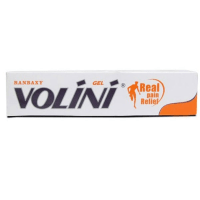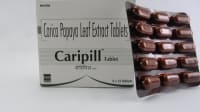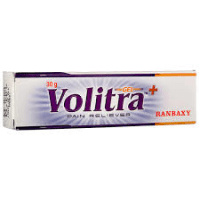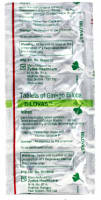
Interaction with alcohol is unknown. Please consult your doctor.

WEIGH RISKS VS BENEFITS
Quinonir Syrup may be unsafe to use during pregnancy.Animal studies have shown adverse effects on the foetus, however, there are limited human studies. The benefits from use in pregnant women may be acceptable despite the risk. Please consult your doctor.

SAFE
Quinonir Syrup is safe to use during lactation. Human studies have shown that either the drug does not pass into the breastmilk in significant amount or is not expected to cause toxicity to the baby.

Do not drive unless you are feeling well.Quinonir Syrup may affect your vision and cause vertigo (dizziness or spinning sensation) which may affect your ability to drive.

CAUTION
Quinonir Syrup should be used with caution in patients with kidney disease. Dose adjustment of Quinonir Syrup may be needed. Please consult your doctor.

CAUTION
Quinonir Syrup should be used with caution in patients with liver disease. Dose adjustment of Quinonir Syrup may be needed. Please consult your doctor.
Uses of Glucosamine
Glucosamine is used in osteoarthritis.
Uses of Quinonir Syrup
Quinonir Syrup is used in the treatment of malaria and Cerebral malaria.
How to use Glucosamine
Take this medicine in the dose and duration as advised by your doctor. Swallow it as a whole. Do not chew, crush or break it.
How to use Quinonir Syrup
Take this medicine in the dose and duration as advised by your doctor. Check the label for directions before use. Measure it with a measuring cup and take it by mouth. Shake well before use. Quinonir Syrup is to be taken with food.
How Quinonir Syrup works
Quinonir Syrup is a weak base that reaches high concentration within the malarial parasite and causes accumulation of toxic heme pigment, which kills it.
Common Nausea, Abdominal cramp, Diarrhoea.
Common Nausea, Abdominal pain, Blurred vision, Changes in color vision, Dizziness, Face redness, Headache, Altered heart rate, Increased sweating, Ringing in ear, Vertigo, Vomiting.
Expert advice for Glucosamine
Do not take glucosamine, if you are allergic to glucosamine or shell fish.
Avoid taking glucosamine, if you are pregnant or breast feeding.
Doctor’s advice should be considered in case of patients with following history of disease conditions: diabetes; high cholesterol or triglycerides; cancer; liver disease; asthma or breathing disorder.
Do not continue the glucosamine, if you are having surgery.
Expert advice for Quinonir Syrup
Take this medication with meals to minimize chances of stomach upset.
Tell your doctor if you have any heart problems related to irregular rhythm of heartbeats or any liver or kidney disorder.
Seek immediate medical attention if you experience unexplained bleeding or bruising as quinine may decrease platelet count in blood (thrombocytopenia).
You should regularly check the blood glucose levels during the treatment with quinine.
Tell your doctor if you are or planning to become pregnant or are breastfeeding.
Do not take if allergic to quinine or any of its ingredients or mefloquine or quinidine.
Avoid if Patients have prolonged QT interval (disordered electrical activity of heart leading to heart disorders).
Avoid if Patients is suffering from glucose-6-phosphate dehydrogenase deficiency (a hereditary disorder affecting red blood cells).
Do not take if suffering from myasthenia gravis (a rare disorder characterized by severe muscle weakness).
Avoid if Patients has optic neuritis (inflammation of the eye nerve causing visual disorders).
Do not take if Patients have history of blackwater fever (a complication of malaria), thrombotic thrombocytopenic purpura (a rare blood disorder) or thrombocytopenia (abnormally low number of platelets in blood).
Avoid if Patients is suffering from tinnitus (ringing in ears) or hematuria (blood in the urine).
Q. Is Glucosamine good for joints/ arthritis?
Yes,Glucosamine is used as an aid to relieve joint pain, swelling and stiffness due to arthritis
Q. Is Glucosamine safe for diabetics?
No,it is not safe for diabetics. Patient should follow the advice of doctor regarding its use
Q. Is Glucosamine a steroid/ blood thinner?
No,it is a sugar protein and not a steroid/blood thinner
Q. How long can I take Glucosamine for?
Patient may take Glucosamine for prescribed dose and duration as advised by your doctor
Q. Can I take glucosamine with statins/ calcium/ blood thinners/ levothyroxine/ beta blockers/ naproxen/ coffee/ warfarin/ blood pressure tablets?
Patient should not take glucosamine along with warfarin.Taking other medicines with glucosamine may alter the effects of glucosamine.Always consult your doctor for the change of dose regimen or an alternative drug of choice that may strictly be required
Q. Does Glucosamine increase weight/ cause gas/ affect blood pressure/ increase blood sugar?
Glucosamine causing these side effects is very rare. However consult your doctor if you experience any of these side effects.
Q. Is Quinonir good for leg cramps/ cramps/ stop leg cramps/ help leg cramps?
Yes. Quinonir is used in certain cases to prevent and treat night leg cramps which regularly disrupt sleep
Q. Does Quinonir help with restless leg syndrome?
No. Quinonir is not indicated for use in neurological conditions like restless leg syndrome. It is used in certain cases to prevent and treat night leg cramps
Q. Is quinine an alkaloid/ a stimulant/ a diuretic?
Quinine is an alkaloid obtained from bark of the cinchona tree. It is not a stimulant (i.e. does not stimulate the brain or any mental functions) or a diuretic (does not increase urine output)
Q. Can you take quinine with warfarin?
Taking warfarin with quinine may increase risk of unexplained bleeding or bruising as quinine may decrease platelet count in blood (thrombocytopenia). Please inform your doctor about all medications you are taking currently before starting quinine treatment
Q. Does Quinonir prevent malaria?
No. Quinonir does not prevent malaria. It is used for the treatment of malaria (caused by parasite Plasmodium falciparum) which is resistant to multiple drugs including chloroquine.


 Quinonir Syrup
Quinonir Syrup  Bookmark
Bookmark





















